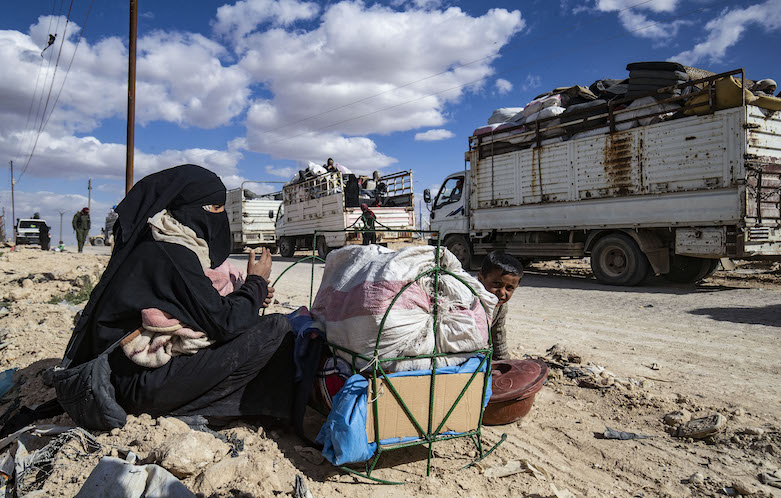New security operation begins in al-Hol after wave of assassinations

ERBIL (Kurdistan 24) – A new security operation was carried out in al-Hol camp against ISIS sleeper cells on Friday after several civilians were killed in the notorious camp in northeast Syria this month.
Ambassador Jussi Tanner, the Finnish Foreign Ministry’s special envoy in charge of the repatriation of foreign nationals, told Kurdistan 24 on Friday that “it looks like a major security operation to crack down on the assassinations which have gone out of control in 2021.”
“The SDF [Syrian Democratic Forces] have clearly planned this thoroughly. It’s their largest mobilization in al-Hol since June last year,” he stated.
“The SDF have legitimate reasons for trying to restore security in the camp. We are following the developments closely.”
The Syrian Kurdish news agency Hawar News (ANHA) reported on Friday that tribal leaders from the camp, which is located in the Hasakah countryside, stressed the need to “launch large-scale security and combing operations in al-Hol camp, to eliminate ISIS sleeper” after an increase in murders.
ANHA reported that at least 73 Iraqi refugees and displaced Syrians have been killed in the camp since February 2019.
So far, there has been no official statement from the SDF or Internal Security Forces in al-Hol camp. The pro-Syrian government news agency SANA also reported that security forces had surrounded the camp.
The SDF on Wednesday announced that 15 residents were killed in the month of March, including three women.
Read More: ISIS kills 15 residents of Syria’s sprawling al-Hol displacement camp in March: SDF
Open-source researcher Caki Akyuz told Kurdistan 24 that the internal security forces, also known as Asayish in Kurdish, have been carrying out several raids in the camp in the last few weeks.
“Civilians in the camp talk daily about the security deterioration in the camp and money flows and weapons into the camp,” he said.
He underlined that countries need to step up to support the Kurdish-led civilian Autonomous Administration of North and East Syria (AANES) in dealing with people linked to the Islamic State group who remain in al-Hol.
“The chaos and insecurity will blow up in the camp and it’s a very critical time, not only in al-Hol, but also the insurgency of ISIS outside the camp, with increased ISIS attacks on civil council members.”
Last week, the AANES again called on the international community to continue repatriation efforts for children and their mothers from al-Hol, deeming current efforts to do so “insufficient.”
It furthermore reiterated the need for international expertise in setting up a court to try Islamic State suspects.
After visiting al-Hol, Peter Maurer, the president of the International Committee of the Red Cross (ICRC) called on Friday for a new approach to find practical solutions for the nationals of more than 60 countries who remain in al-Hol.
The majority of al-Hol’s residents are Iraqis and Syrians, but the camp also includes a large number of foreign families thought to be tied to the Islamic State. According to the United Nations, there are about 62,000 people still in the camp, including tens of thousands of women affiliated to Islamic State, along with their children.
As a result of the vast numbers, it has been difficult for guards to prevent repeated violent incidents, including multiple murders.
Local authorities decided in early October to expedite the departure of displaced Syrian families from al-Hol as part of a new program, but the Iraqi government has so far refused to repatriate most Iraqis living in the camp.
Editing by Joanne Stocker-Kelly
